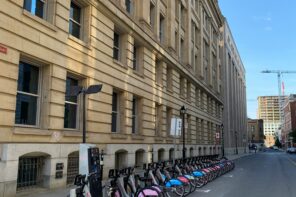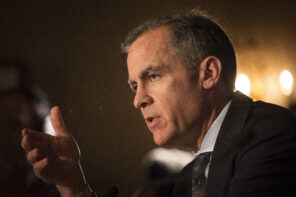Nowadays, it seems like everyone wants to wear whatever is most expensive on the market. Brand names like Gucci, Burberry and Balenciaga are tossed around in everyday conversation, and wherever you look on the street you can see the famous trademarks associated with luxury. Even the statistics seem to suggest this, with a 3.2 percent growth in revenue worldwide in the past year. However, one brand is going against the grain, and that brand is Uniqlo.
Behind their rapid international growth in recent years, Uniqlo has risen to the forefront of the ‘affordable’ fashion industry, amongst other established players like H&M and Zara. They have even begun to challenge their dominance in North American markets, opening gigantic stores in Toronto, with plans of opening even more across Canada. In fact, they are planning to open a store right here in Montreal in the coming year, and this possibility has people across the city brimming with excitement.
For those who do not know about the brand, Uniqlo is owned by Fast Retailing, which was founded and is currently owned by the richest man in Japan, Tadashi Yanai. Uniqlo offers simple yet highly touted fashion items at very affordable prices, targeting consumers who want to look good but don’t want to go too deep into their pockets. Its greatest selling points are consistency in pricing strategy, and its collaborations with various designers and artists. Their newest collaboration with RW Anderson, scheduled to drop on October 17, is the epitome of fall fashion, and will be right in season.
Uniqlo offers simple yet highly touted fashion items at very affordable prices, targeting consumers who want to look good but don’t want to go too deep into their pockets.
In recent months, they even managed to steal tennis star and legend, Roger Federer away from Nike on a $300 million deal (you can find out more about that here). Federer’s signing with Uniqlo is a statement that it is not like its competitors. Unlike other fashion brands, it has made strides forward in creating technologies that can be applied in all of their clothing lines, which now includes athletic wear. With innovations like Heattech and the Airism line, Uniqlo creates multifunctional clothing for all aspects of life, and that spells bad news for their competition.
Other examples of Uniqlo initiatives and innovations include their sustainability initiative, in which they offer to take used Uniqlo clothing as donations and send them to people in developing countries and refugees who are in desperate need of clothing.
So what does this all mean for Montreal? Well, an overlooked aspect of the new store opening is the fact that it will be opened in the old Forever21 location on Sainte-Catherine. Forever21 deciding to close its doors in Canada symbolizes the end of an era in fashion, and the opening of more Uniqlo stores across the country could be seen as the passing of the torch to this new, up-and-coming brand.
Uniqlo initiatives and innovations include their sustainability initiative, in which they offer to take used Uniqlo clothing as donations and send them to people in developing countries
This does not mean that everything will be smooth sailing for Uniqlo. As all things go, there will be an initial struggle to saturate the Montreal market, especially in bringing customers who have been loyal to the H&M and Urban Outfitters through their doors. However, with their already well-established presence as an affordable fashion brand, as well as the powers of social media, this should not be a problem at all in a big city like Montreal.
As for the other low-price, fast fashion brands that have set up shop in the area, they must figure out a way to offer consumers the same unique experience that Uniqlo has mastered, or else they might take their lunch money too, the same way they did with Nike.








